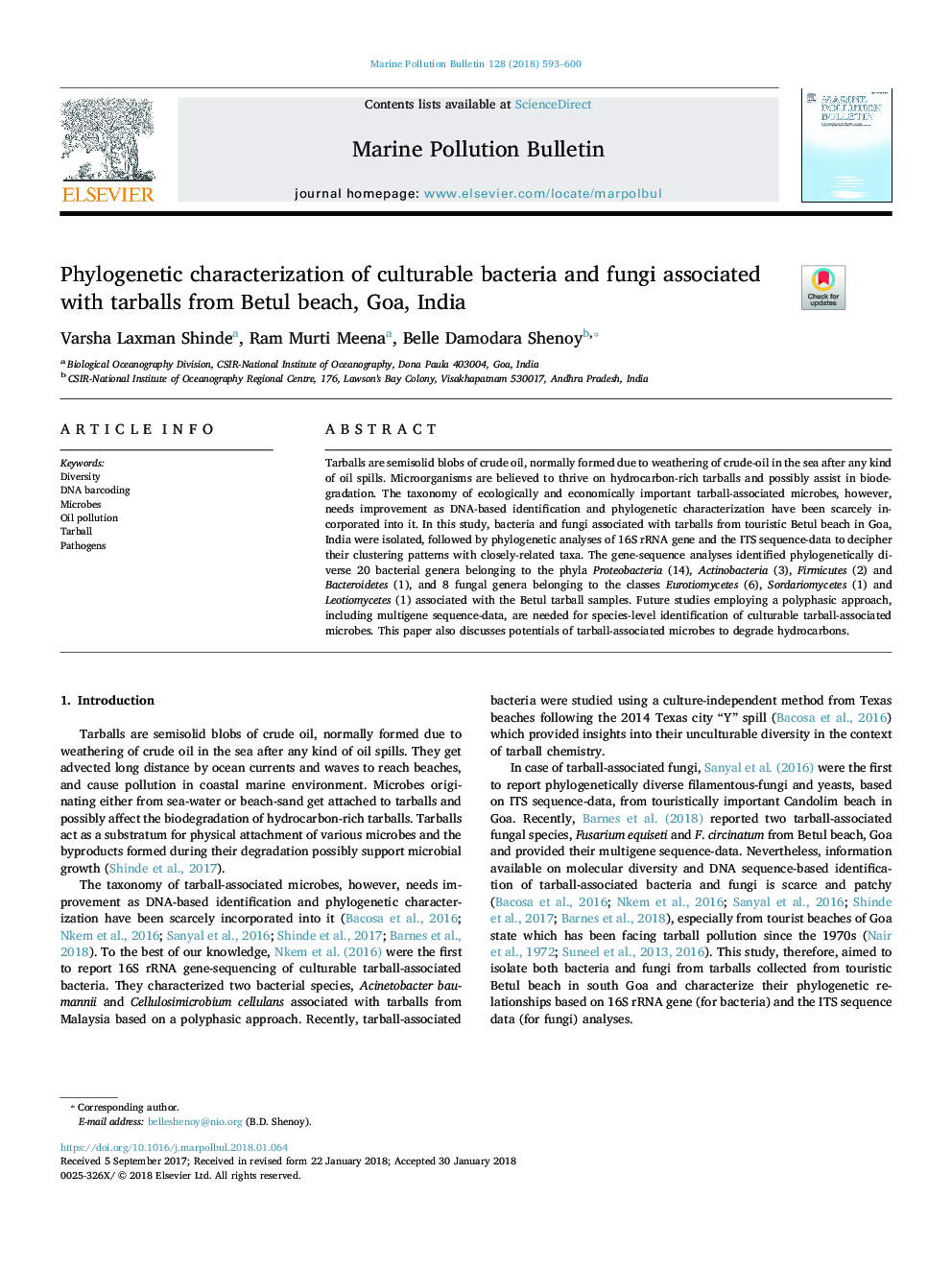| Article ID | Journal | Published Year | Pages | File Type |
|---|---|---|---|---|
| 8871851 | Marine Pollution Bulletin | 2018 | 8 Pages |
Abstract
Tarballs are semisolid blobs of crude oil, normally formed due to weathering of crude-oil in the sea after any kind of oil spills. Microorganisms are believed to thrive on hydrocarbon-rich tarballs and possibly assist in biodegradation. The taxonomy of ecologically and economically important tarball-associated microbes, however, needs improvement as DNA-based identification and phylogenetic characterization have been scarcely incorporated into it. In this study, bacteria and fungi associated with tarballs from touristic Betul beach in Goa, India were isolated, followed by phylogenetic analyses of 16S rRNA gene and the ITS sequence-data to decipher their clustering patterns with closely-related taxa. The gene-sequence analyses identified phylogenetically diverse 20 bacterial genera belonging to the phyla Proteobacteria (14), Actinobacteria (3), Firmicutes (2) and Bacteroidetes (1), and 8 fungal genera belonging to the classes Eurotiomycetes (6), Sordariomycetes (1) and Leotiomycetes (1) associated with the Betul tarball samples. Future studies employing a polyphasic approach, including multigene sequence-data, are needed for species-level identification of culturable tarball-associated microbes. This paper also discusses potentials of tarball-associated microbes to degrade hydrocarbons.
Related Topics
Physical Sciences and Engineering
Earth and Planetary Sciences
Oceanography
Authors
Varsha Laxman Shinde, Ram Murti Meena, Belle Damodara Shenoy,
